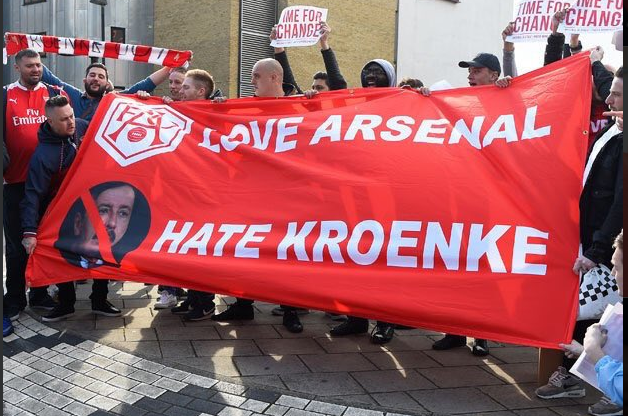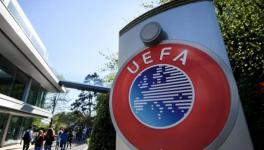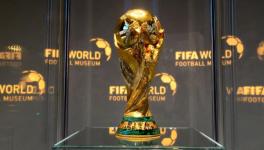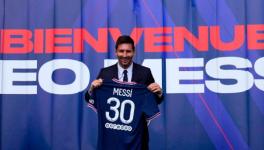Single Owner, Million Questions: Arsenal FC’s Stan Kroenke Era Begins

Stan Kroenke has been trying a ‘business takeover’ of Arsenal FC since 2011, and the Gunners fans have been apprehensive about the American taking full control of the club's affairs (PIC: Twitter).
Early in the 1920s, there came a spending splurge in the top division of the English Football League, pushed for the most part by Arsenal FC. They paid a five figure sum for David Jack (£10,890), a British transfer record that stood for a decade. Ten years on, they broke it, loosening the purse strings to tempt Bryn Jones and away from Wolverhampton Wanderers. It was a time when Arsenal were called the ‘Bank of England’ club. The moniker was part derogatory and part explanatory. The club were derided for their money splurging ways to build a team, but onlookers understood that the money came from Arsenal’s strong system that facilitated financial independence -- backed in part by gate receipts of their great old ground, Highbury.
After the end of World War II, Highbury’s commissioning as a air-raid precautions post left Arsenal without a steady home ground to play, and the cost of the repairs emptied most of their cash reserves. Decades later, as other clubs expanded their stadia, Arsenal were not allowed to modify Highbury -- a war time relic protected by the National Trust.
The history lesson is necessary. If only to magnify how far the club have come from their old ‘Bank of England’ days. Arsenal’s longest serving manager -- now gone but will not be named -- is a Frenchman. They are a multi-ethnic squad, managed by a Spanish coach, overseen by a German and owned by an American from Missouri.
Also Read | Gibraltar United’s Cryptocurrency Plunge Too Rushed to Be a Football Revolution
When Stan Kroenke bought over the reins at Arsenal in 2011, everyone across England rued the demise of the most English of all teams, and the final tipping piece of the domino effect that had engulfed the English football landscape in the preceding ten years. The London club became the final member of the ‘Big Four’ to collapse to foreign ownership.
There was apprehension among the supporters base, at what they believed was a ‘business takeover’ by a man solely interested in making profit from the club. They were alarmed, but their bells were put on hold, because, Kroenke did not have full control of Arsenal yet.
When he bought the club in 2011, Kroenke took over 67.09% of the shares of the club. The balance 30.04% of the shares were held by Alisher Usmanov, a Russian oligarch who spent the years that followed criticising everything Kroenke did, and established himself in some fan circles as the cult hero of the Arsenal ideal. The two were locked in a Cold War impasse -- Kroenke refused to sell his majority, or even grant Usmanov a seat on the board, rendering the shares useless. Usmanov refused to sell his shares, and made several overtures to buy Kroenke out. It was the story every summer.
Also Read | Racism Should Never Ever Be Accepted: Mesut Ozil’s Open Letter (Full Text)
Now, Usmanov has caved in finally. Perhaps the realisation that his takeover may never really happen, and the fact that no one else was willing to buy his shares to be similarly locked out, he has decided to sell to Kroenke for about £600 million.
It is not a serious loss for him, but for Arsenal fans this is a matter of serious concern. Once Kroenke has Usmanov’s shares, stock market rules will allow him to make a compulsory purchase of all the remaining ones, thus giving him 100% ownership. Fans will now see their club fall into private ownership. Once done, transparency will be a tarpaulin dream, no longer subject to public answering. They will become what Chelsea, Manchesters (United and City), Liverpool FC, and Tottenham Hotspur are: unanswerable, on a management level, to their fans, free to do as they please.
The Arsenal Annual General Meeting (AGM) will no longer be held. This will be a disruption for pop culture media of course, but it will also mean that a platform on which shareholders -- many of them Arsenal fans with a single share bought years ago -- voiced their displeasure at the running of the club, will be no longer exist. The detailed public accounts allowing people to see the transfer of money will no longer be published.
Also Read | What Indian Sports Stars Can Learn From Socrates
A casual reader will see the obvious benefits of being listed among those names. Each of those clubs, privately owned now, rank higher than Arsenal on the Premier League table. Four of them have won the title more recently than Arsenal, and two look set to continue their dominance over English football for a while. All in all, the reader may assume Arsenal will do better with one man at the helm. And herein lies the catch. A 22, if you will.
Kroenke is nothing like the rest of them.
Not once in the 11 years since he first bought shares in the club has this billionaire put a single penny into the team. Arsenal have famously been run as a self-sustaining business, spending only what they earn. In the earlier part of his ownership, he took money out -- serving himself payments of £3 million -- till fan discontent put a stop to it. Without an AGM to question him, who is to say that £3 million leak doesn’t open up again.
To buy Usmanov’s shares, KSE (Kroenke Investment Holdings) has also taken a loan from Deutsche Bank (worth £550 million). Although KSE says in its statement to the London Stock Exchange that this is “not being funded by way of any debt finance”, nobody can tell if, after he assumes full control, Kroenke leverages the value of Arsenal to service that loan. Several owners have a precedent of that.
Also Read | Kylian Mbappe, the Future of Football? Not Yet
There is an overwhelmingly negative feel to Arsenal already this season, and all this before a ball has been kicked or a game been lost (arguably, Arsenal fans may not have to wait too long for the latter, they play Manchester City on the opening weekend).
In a year of transition, when their most prized asset, their now-gone manager-who-will-not-be-named has left, Arsenal’s bigger troubles are pointedly off the pitch.
Single owner franchises tend to do better in football, if only because one man’s ego is simple to satisfy than a collective responsibility. But Kroenke unfortunately has never given an indication of actually being interested in galvanising the club’s fortunes.
With massive TV deals providing vast amounts of income, Arsenal under Kroenke haven’t just coasted along, but gone backwards. They no longer play UEFA Champions League football, the club is not as attractive as it once was, and even with a new coach and new transfers, it feels as if there’s a huge amount to do to make meaningful progress on the pitch.
Unless the American actually puts some of his money where his mouth is, it will be an uphill struggle. And a fanbase who were not quiet when it came to letting a legendary figure like the former coach know what they thought, will certainly be forthright in their views. Sustained failure on the other hand could also see Kroenke cut his losses and run.
But the truth is that from here on out, Arsenal will only always be a single owner franchise, and the perils of opacity will now burden the erstwhile Bank of England club.
Get the latest reports & analysis with people's perspective on Protests, movements & deep analytical videos, discussions of the current affairs in your Telegram app. Subscribe to NewsClick's Telegram channel & get Real-Time updates on stories, as they get published on our website.
























